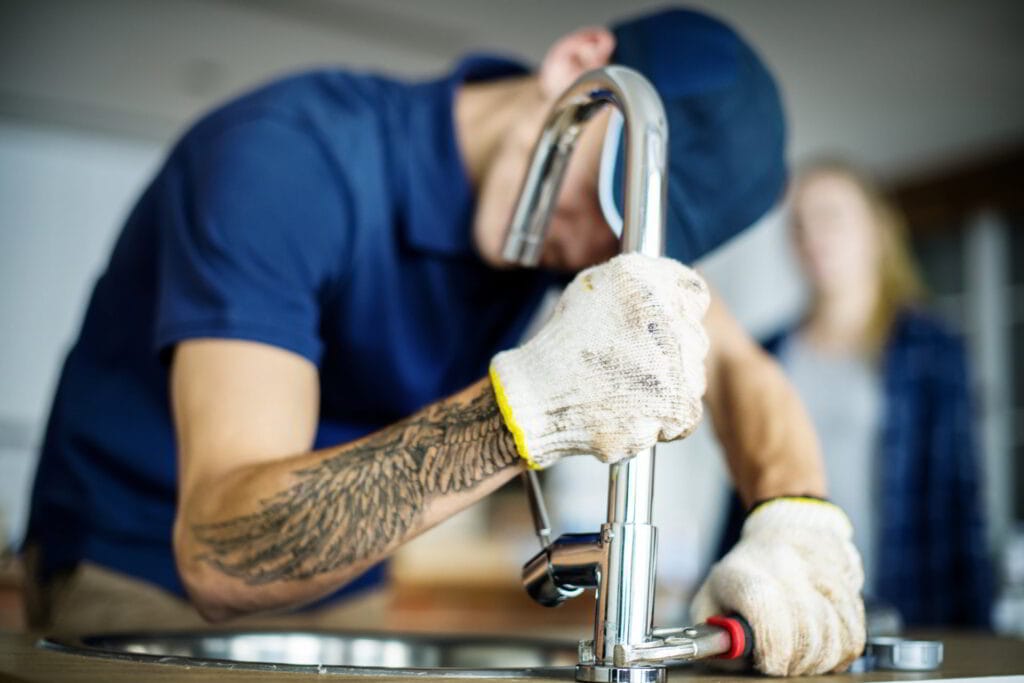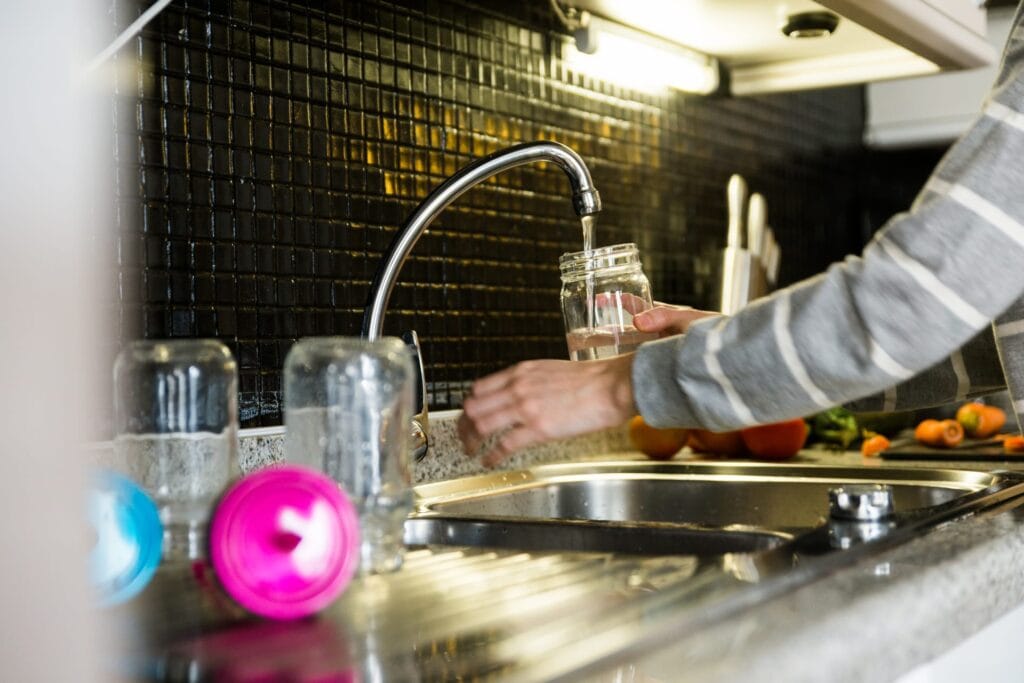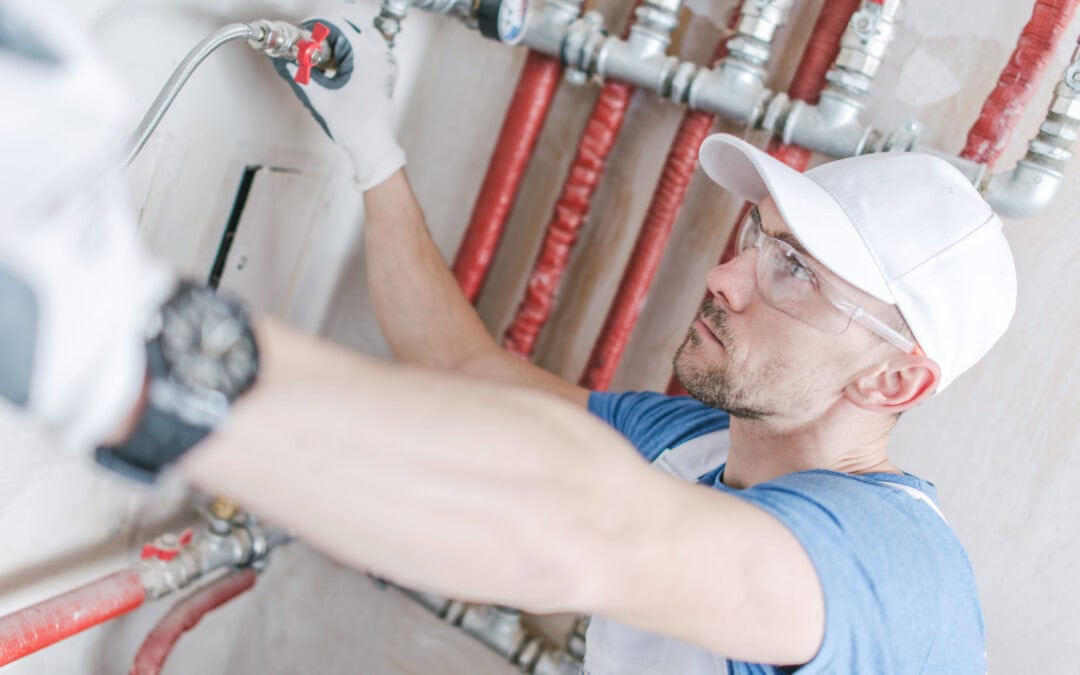Experiencing low water pressure can be incredibly frustrating, whether it’s a trickle from your shower or a slow flow from your kitchen tap. This issue not only affects daily activities but can also indicate underlying problems within the plumbing system. Understanding what causes low water pressure and how a plumber can help is essential for maintaining an efficient household or business.
Common Causes of Low Water Pressure
Sediment Buildup
Sediment buildup in pipes is one of the most common culprits behind low water pressure. Over time, minerals from hard water accumulate inside the pipes, gradually restricting the water flow. Imagine turning on your faucet one morning, only to find the water barely dribbling out; this could be due to sediment clogging the pipes.
- Hard water contains minerals that build up in pipes.
- This buildup reduces the diameter of the pipes.
- Regular maintenance can prevent significant sediment accumulation.
Pipe Corrosion
Older plumbing systems, especially those with galvanized steel pipes, are prone to corrosion. Corrosion narrows the pipe’s interior, reducing water flow and leading to low water pressure. In one case, a homeowner experienced severe pressure drops due to corroded pipes that needed replacement.
- Galvanized steel pipes are susceptible to rust.
- Corrosion inside pipes restricts water flow.
- Replacing old pipes can resolve this issue.
Leaking Pipes
Leaking pipes are another significant cause of low water pressure. When water escapes through leaks, less water reaches the fixtures, resulting in decreased pressure. Leaks can be challenging to detect, but signs like damp spots on walls or ceilings and an unexpected increase in water bills are telltale indicators.
- Leaks divert water away from intended fixtures.
- Increased water bills can indicate hidden leaks.
- Professional plumbers use advanced tools to detect and repair leaks.
Faulty Fixtures
Sometimes, the problem lies not within the pipes but in the fixtures themselves. Faucets and showerheads can wear out over time, becoming clogged with mineral deposits and debris. Replacing or repairing these fixtures can often restore normal water pressure.
- Mineral deposits can clog faucets and showerheads.
- Regular cleaning and maintenance can prevent this.
- Replacing old fixtures can improve water flow.
Pressure Regulator Issues
Pressure regulators are devices installed to maintain consistent water pressure within the plumbing system. When these regulators malfunction, they can cause a significant drop in water pressure. A professional plumber can diagnose and adjust or replace faulty pressure regulators to restore proper water pressure.
- Pressure regulators control the water flow into your home.
- Malfunctioning regulators can reduce water pressure.
- Plumbers can adjust or replace faulty regulators.

plumber fixing a sink
How a Plumber Can Help
Professional Diagnosis
Identifying the root cause of low water pressure requires professional expertise. Plumbers have the experience and tools necessary to accurately diagnose the problem. For instance, they can use pressure gauges and pipe inspection cameras to pinpoint issues that might not be visible to the naked eye.
- Plumbers use advanced diagnostic tools.
- Accurate diagnosis ensures effective solutions.
- Professional inspections can reveal hidden problems.
Pipe Cleaning and Replacement
When sediment buildup or corrosion is the issue, plumbers can clean the pipes using specialized equipment. In severe cases, replacing old or damaged pipes might be necessary to restore optimal water pressure. A plumber can recommend the best course of action based on the condition of your plumbing system.
- Hydro-jetting removes sediment buildup.
- Pipe replacement might be necessary for corroded pipes.
- Professional cleaning extends the lifespan of pipes.
Leak Detection and Repair
Detecting and repairing leaks is crucial for resolving low water pressure problems. Plumbers use advanced leak detection methods, such as acoustic sensors and infrared cameras, to find leaks that are not visible. Once detected, they can efficiently repair the leaks to restore normal water pressure.
- Acoustic sensors and infrared cameras detect hidden leaks.
- Prompt repairs prevent further damage.
- Professional leak detection ensures accurate repairs.
Fixture Repair and Replacement
Faulty fixtures can significantly impact water pressure. Plumbers can repair or replace worn-out faucets, showerheads, and other fixtures to improve water flow. Upgrading to modern, efficient fixtures can also enhance overall water pressure and reduce water usage.
- Replacing clogged or worn-out fixtures improves flow.
- Modern fixtures offer better performance.
- Regular maintenance keeps fixtures in good condition.
Pressure Regulator Adjustment
If the pressure regulator is the issue, a plumber can adjust it to the correct settings or replace it if necessary. Properly functioning pressure regulators are essential for maintaining consistent water pressure throughout your home or business.
- Properly adjusted regulators ensure consistent pressure.
- Plumbers can replace faulty regulators.
- Regular checks keep regulators functioning well.

Benefits of Hiring Local Plumbers
Local Expertise
Hiring local plumbers, especially in New Orleans, comes with the advantage of their familiarity with common plumbing issues in the area. They understand the unique challenges posed by the local water supply and infrastructure, providing tailored solutions to address low water pressure effectively.
- Local plumbers know common regional issues.
- Familiarity with local infrastructure aids diagnosis.
- Tailored solutions address specific problems.
Quick Response Time
Local plumbers can respond more quickly to service calls, reducing the time you have to deal with low water pressure. Prompt service ensures that your plumbing issues are addressed before they can escalate into more significant problems.
- Faster response times reduce inconvenience.
- Prompt service prevents further damage.
- Local availability ensures timely assistance.
Customer Satisfaction
Local plumbers rely on positive customer experiences to build their reputation in the community. They are committed to providing high-quality service and ensuring customer satisfaction. Testimonials from satisfied customers can often be found on their websites or social media pages.
- Customer satisfaction builds local reputation.
- High-quality service ensures repeat business.
- Positive testimonials indicate reliable service.

In-depth Analysis
Addressing low water pressure involves understanding various potential causes and implementing effective solutions. Sediment buildup, pipe corrosion, leaks, faulty fixtures, and pressure regulator issues are common culprits. Professional plumbers offer essential services like diagnosis, pipe cleaning, leak repair, fixture maintenance, and pressure regulator adjustment. Local plumbers in New Orleans provide additional benefits due to their familiarity with regional issues, quick response times, and a strong focus on customer satisfaction.
Key Takeaways for Low Water Pressure Solutions
- Understanding Causes: Low water pressure can be caused by sediment buildup, pipe corrosion, leaks, faulty fixtures, and pressure regulator issues.
- Professional Help: Plumbers offer professional diagnosis, pipe cleaning, leak repair, fixture maintenance, and pressure regulator adjustments.
- Local Benefits: Hiring local plumbers in New Orleans provides expertise in regional plumbing issues, quick response times, and high customer satisfaction.
Frequently Asked Questions
- What should I do if I experience low water pressure?
- Contact a professional plumber for a thorough inspection and diagnosis to determine the cause of the issue.
- Can I fix low water pressure myself?
- Some minor issues can be addressed with DIY methods, but for persistent problems, it’s best to hire a professional plumber.
- How often should I have my plumbing system inspected?
- It is recommended to have your plumbing system inspected annually to catch and address any potential issues early.
- Are there any preventative measures to avoid low water pressure?
- Regular maintenance, avoiding the buildup of debris in drains, and replacing old fixtures can help maintain good water pressure.
- What are the signs of pipe corrosion?
- Signs of pipe corrosion include discolored water, metallic taste, and frequent leaks. If you notice these signs, contact a plumber immediately.
Understanding the causes of low water pressure and knowing how a plumber can help is crucial for maintaining a functional plumbing system. With the expertise of local plumbers in New Orleans, you can ensure that your plumbing issues are resolved efficiently and effectively.

